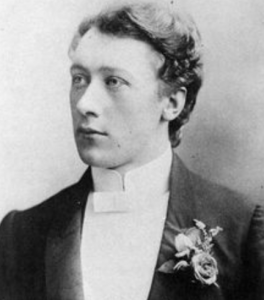 Is Federer relaxed, as Jim Courier says, and what can we, as performers, learn from watching him?
Is Federer relaxed, as Jim Courier says, and what can we, as performers, learn from watching him?
One of my singing teachers used to tell me to RELAX as I was rushing off from my lesson back to the conservatorium for a class. It always had the opposite effect from what she intended. I would tighten and feel defensive that she didn’t understand what I had on my plate. How could I possibly complete the course requirements if I spent my time relaxing?
I know what she wanted to convey. But that word never worked for me.
I watched the final of the 2018 Australian Open a few weeks ago. Did you see it?
One of the commentators, Jim Courier, kept marvelling at Roger Federer: “Wow, he’s SO relaxed..”
I think what Courier appreciates is Federer’s astonishing beauty and ease of movement, and his apparent unflappability on court. Both the result of incredible discipline and training.
 What brings out the word “relaxed” may be the fact that Federer doesn’t tighten when the stakes are raised. He doesn’t tighten, like many of us do, between head and spine, when we care deeply or urgently about the outcome of our action, or when the quality of our action has its greatest import. (And this is the essence of the Alexander Technique, by the way – that’s F.M.Alexander, pictured). He also appears to have a quiet mind as he plays the most important points of a match. Alexander said that you just need to be quiet inside so that the right thing can happen. But that’s different from being relaxed.
What brings out the word “relaxed” may be the fact that Federer doesn’t tighten when the stakes are raised. He doesn’t tighten, like many of us do, between head and spine, when we care deeply or urgently about the outcome of our action, or when the quality of our action has its greatest import. (And this is the essence of the Alexander Technique, by the way – that’s F.M.Alexander, pictured). He also appears to have a quiet mind as he plays the most important points of a match. Alexander said that you just need to be quiet inside so that the right thing can happen. But that’s different from being relaxed.
Federer probably doesn’t care much how we describe him. Maybe it even helps his competitive edge for the world to think he’s relaxed (and not trying or caring).
But “RELAX!” isn’t helpful if we think it’s something we should imitate for peak performance. Is “relaxed” the best we can do to describe someone who plays at Federer’s level? Playing tennis IS work. Playing competition tennis involves mental work as well as physical. And playing to win your 20th grand-slam title… well, can you imagine what kind of discipline that requires? Of mind, body and spirit? And how much he cares about it?
If you waited til the end of the speeches, and saw Federer trying not to sob in front of the world, you’ll have got a glimpse of how much he had invested in winning that match. He was NOT relaxed. If he’d been relaxed, he would have just got on with the handshake, said a few words, taken his Australian Open cup and had a beer with his mates and family and coaches. In those last moments of his speech where he was fighting away the tears, he showed us what he puts into each and every day of his career, and what it means to him.
 When I understood that singing and performing are a kind of work (rather than a kind of relaxation), my whole attitude changed and I began to perform in a way that was more efficient and co-ordinated. I stopped trying to be relaxed and started paying attention to the true mental, physical and spiritual work of singing and performing. And everything got a whole lot easier. To the point where now people might even say that I look “relaxed”!
When I understood that singing and performing are a kind of work (rather than a kind of relaxation), my whole attitude changed and I began to perform in a way that was more efficient and co-ordinated. I stopped trying to be relaxed and started paying attention to the true mental, physical and spiritual work of singing and performing. And everything got a whole lot easier. To the point where now people might even say that I look “relaxed”!
But what I feel I am is co-ordinated. And disciplined. And I work hard. Off stage and on. But I am always on the hunt for ways to make my work easier, more efficient and more effective. As I imagine Federer is.
How do YOU get quiet inside so that the right thing can happen? And have you got a better word for performers than relaxed?


Recent Comments